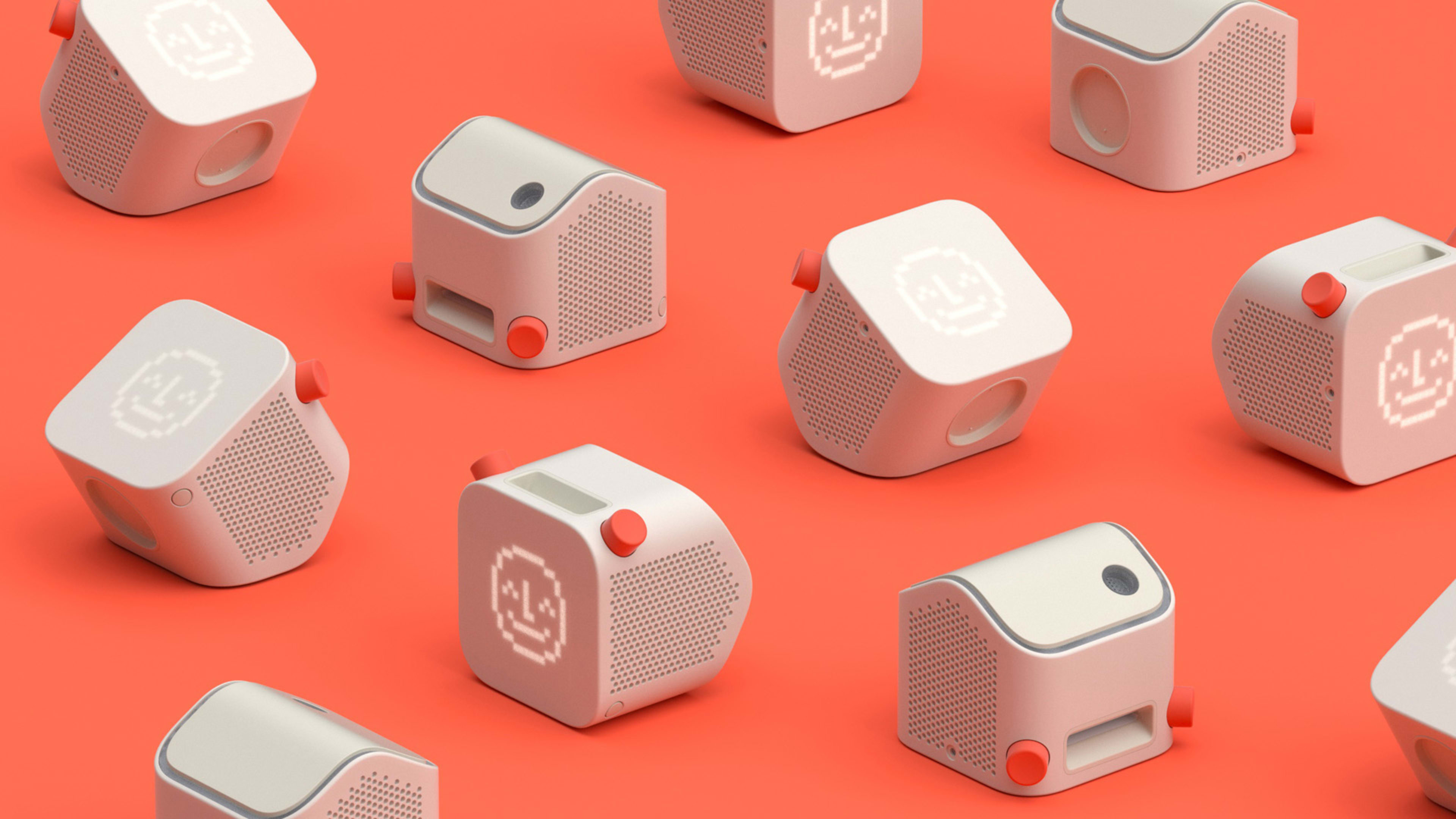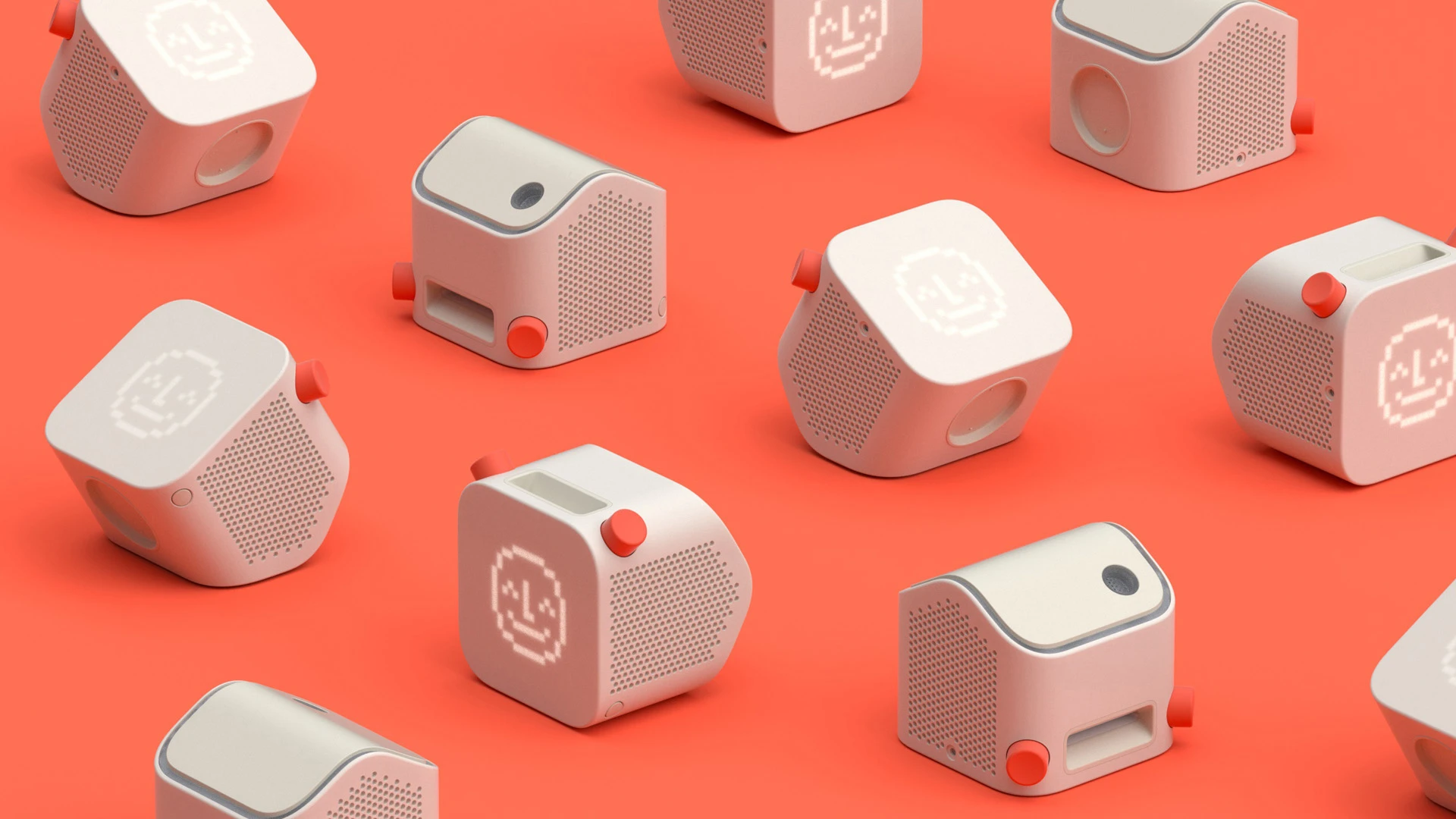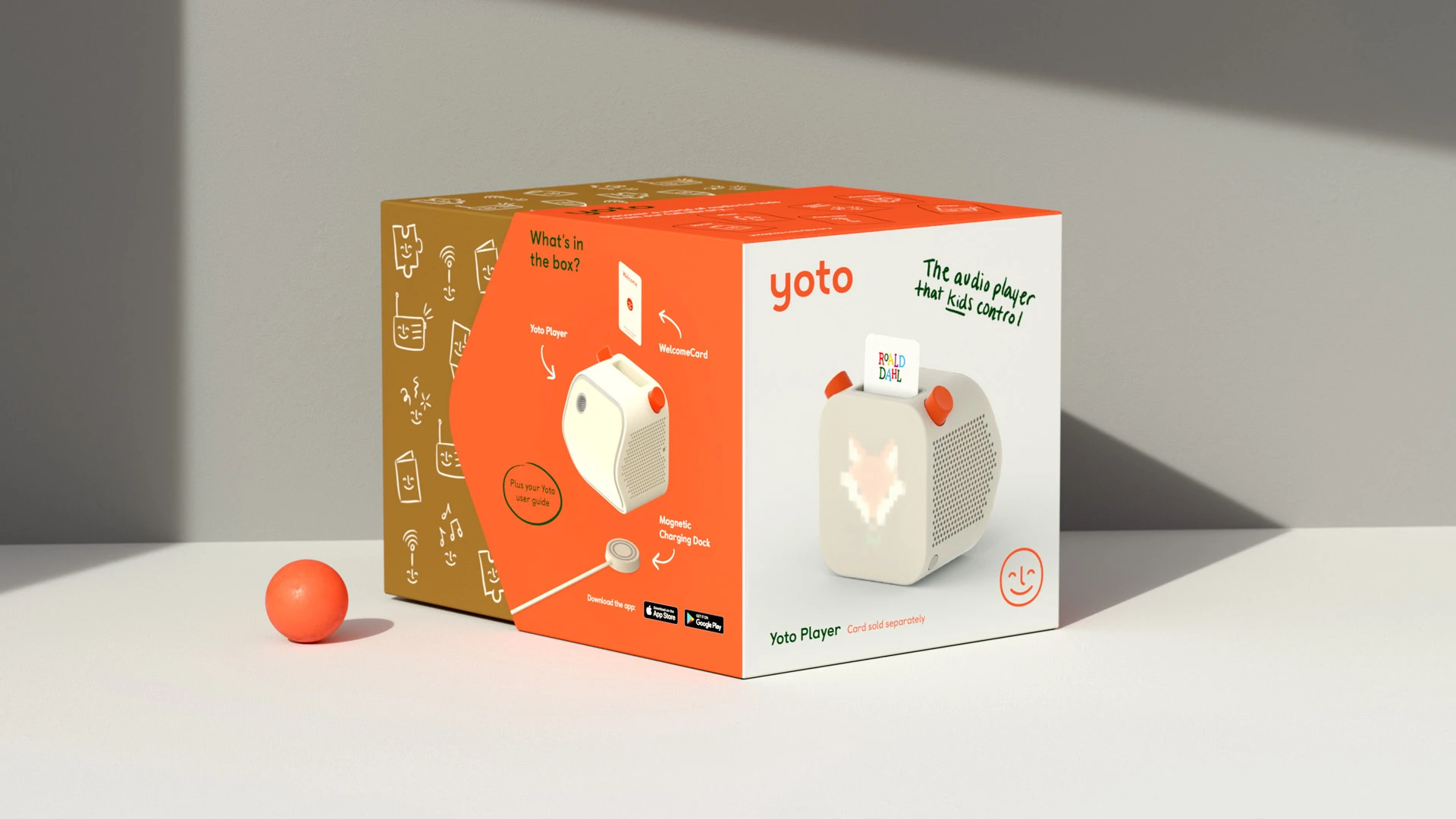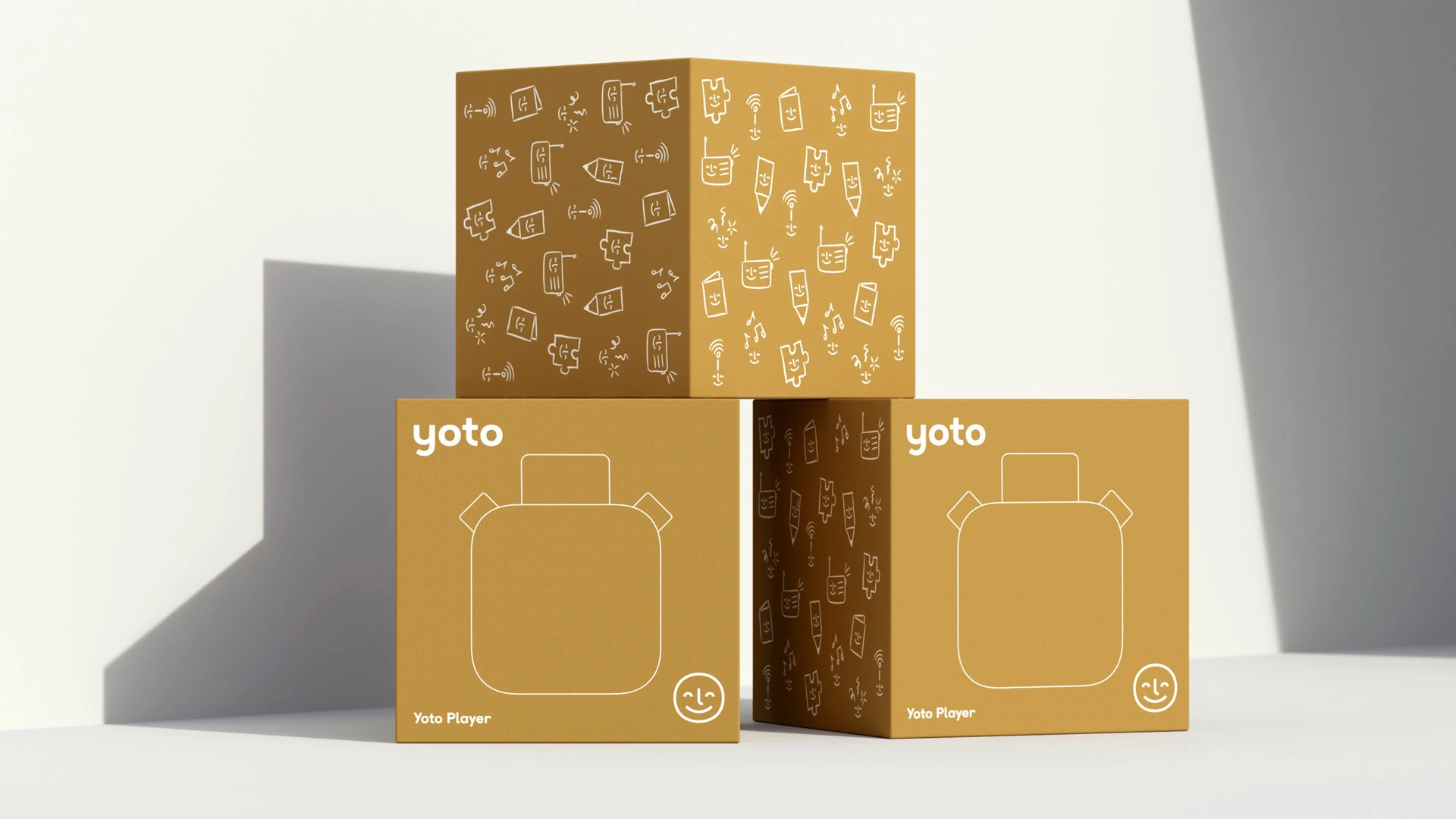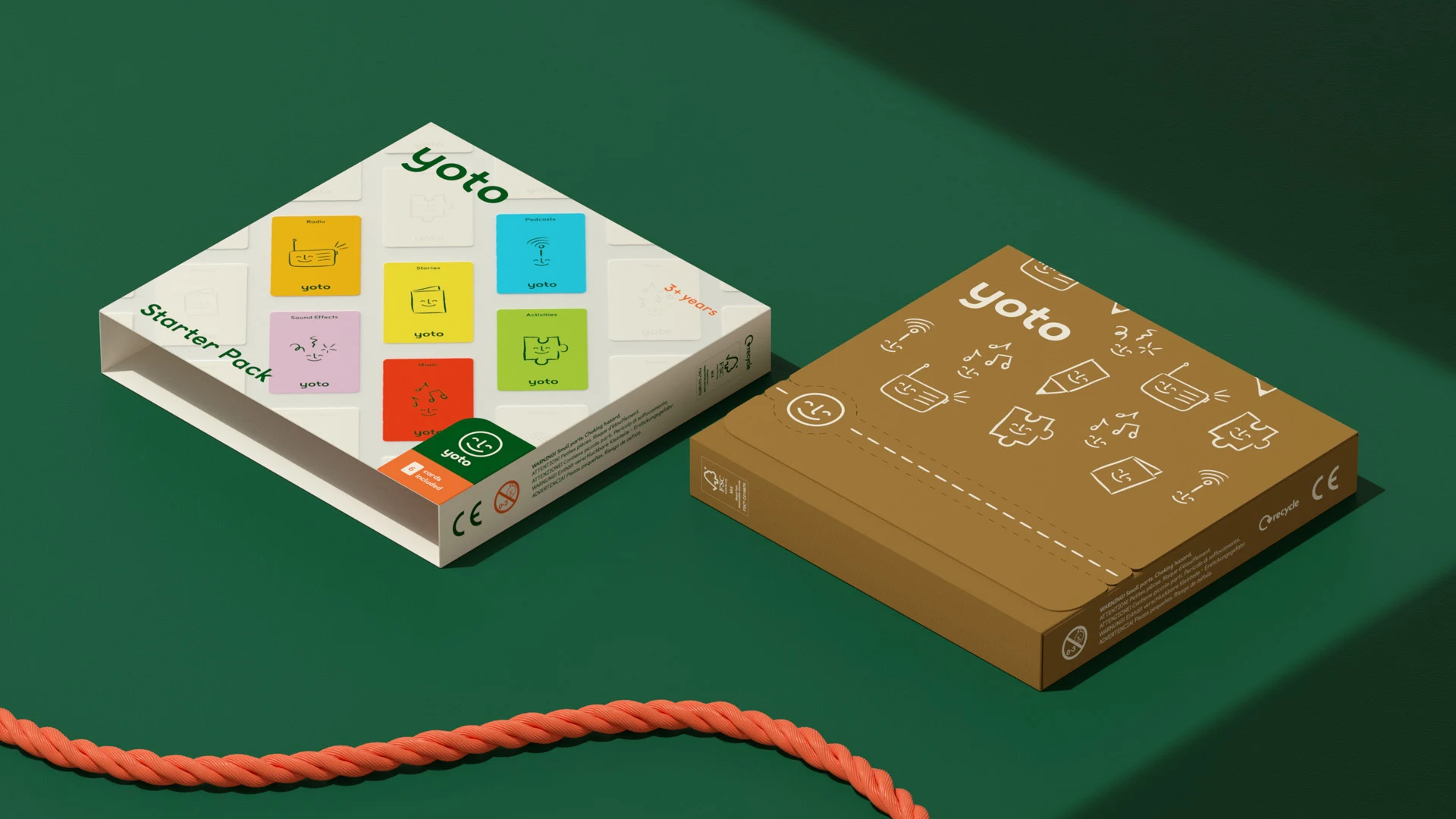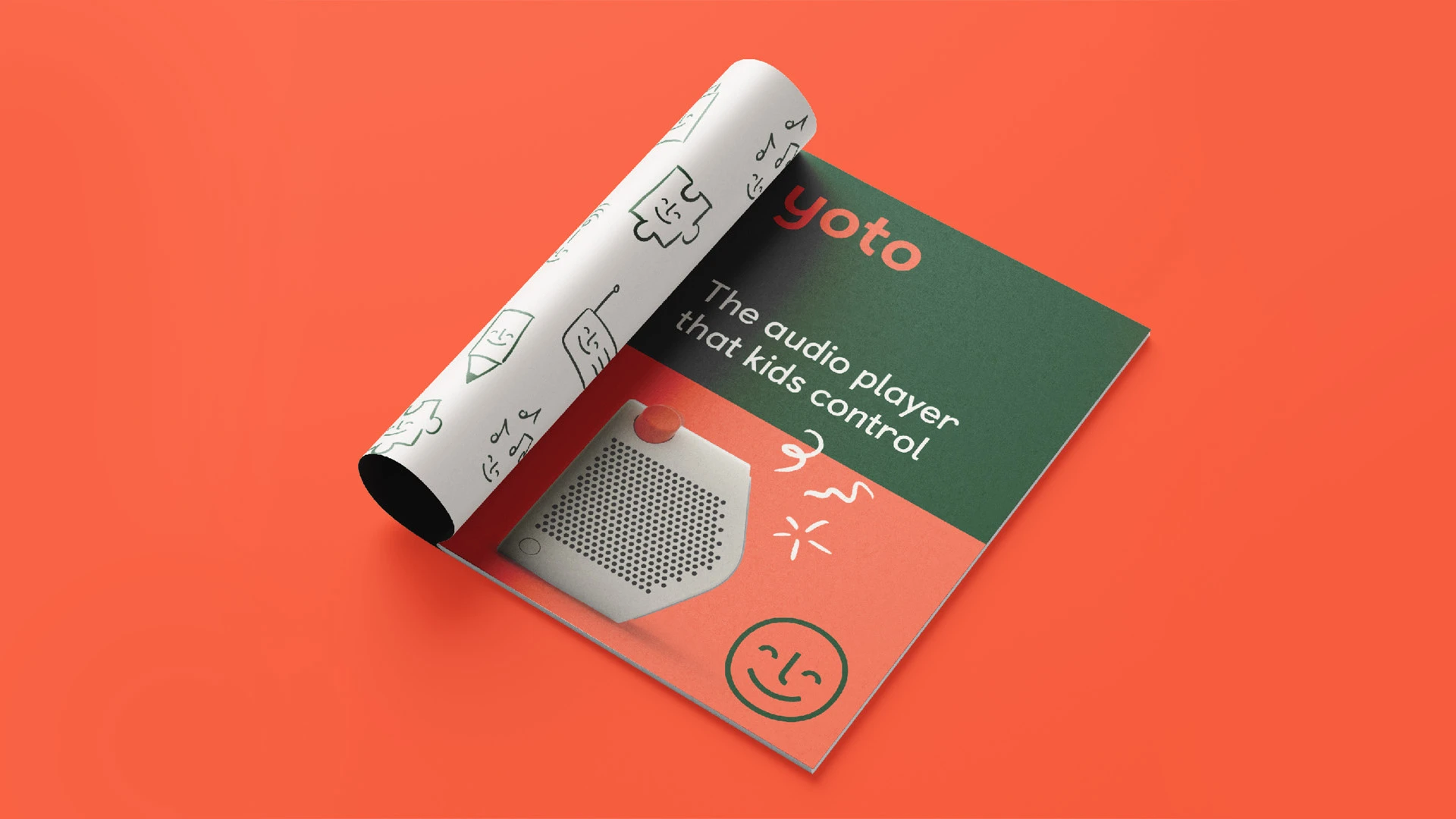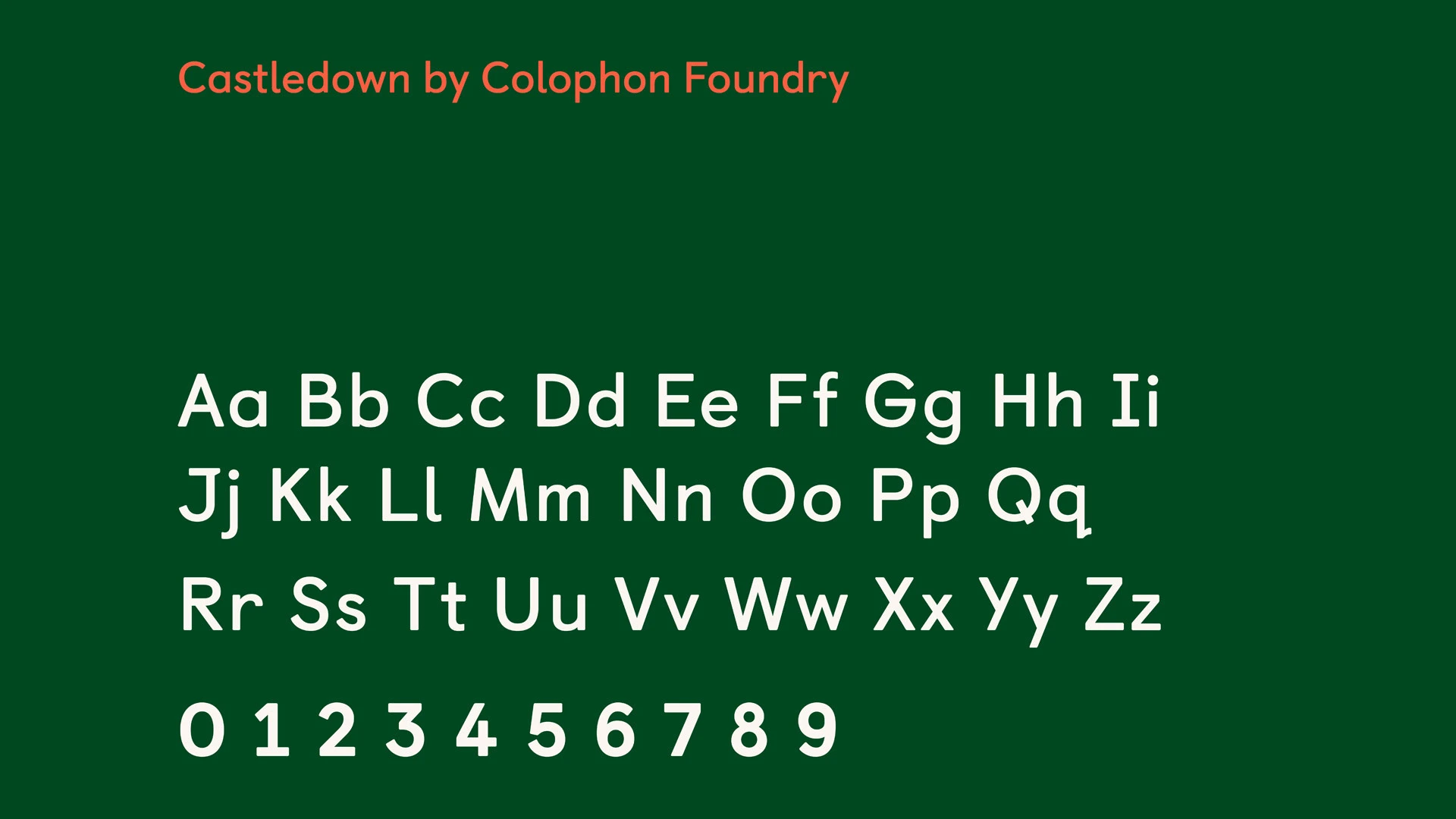Finding a kid-friendly device like an e-reader or audio player is a pain point for a lot of modern parents. Kids’ content, like educational podcasts, shows, or audio books, are often part of bigger catalogs when using a platform like Amazon Prime or Google Play. So the parent either has to cue up the content themselves, or hand the operation over to their kid, who has to navigate a large library of options. And even if parental controls are set up for those platforms, the physical controls and interfaces aren’t designed for clumsy hands or developing brains.
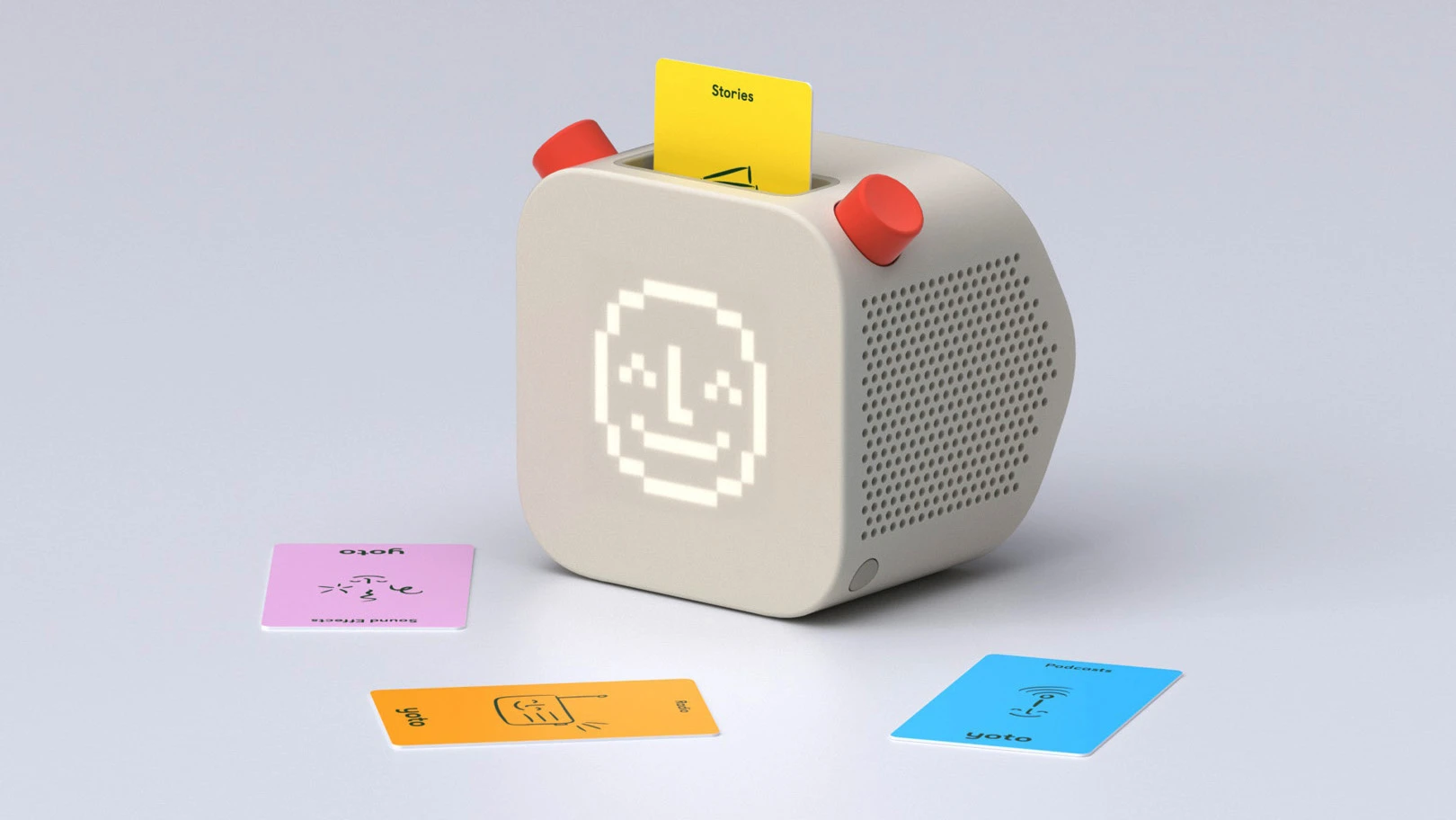
Some families get around this with smart speakers, but those come with privacy concerns—and mean your kid will be shouting at a speaker every time she wants to hear something (and, how will she even know what she wants to hear?). Sure, there’s a kids’ edition of the Amazon Kindle, but it looks like a clunky iPad, a cartoon version of adult tech. Also? It’s yet another addictive screen.

Worried about the potential side effects of excess screen time, and propelled by Montessori teachings that see independence as a boon to child development, two parents created a connected screen-free audio device that plays stories, podcasts, audio books, music, and more, called the Yoto player. After version one of the device sold out in 2019, Yoto worked with Jon Marshall’s and Luke Powell and Jody Hudson-Powell’s teams at Pentagram London to redesign the device, now available for preorder. The result is a thoughtful piece of tech designed specifically with kids in mind—as the site proclaims, “No cam. No mic. No funny business.”
The audio, say an audio book of a Roald Dahl story, starts when the user inputs a physical “smart card” into the top of the blocky, pentagon-shaped device, with two simple red knobs as the only controls. The shape allows the device to tip back for use on the floor while a child’s sitting, or forward to enter into sleep mode. Marshall says it’s “designed from the ground up for children, but we were careful not to make the design too toy-like,” so that the device is also appealing to older kids, and won’t look out of place if you leave it out in a design-savvy home.
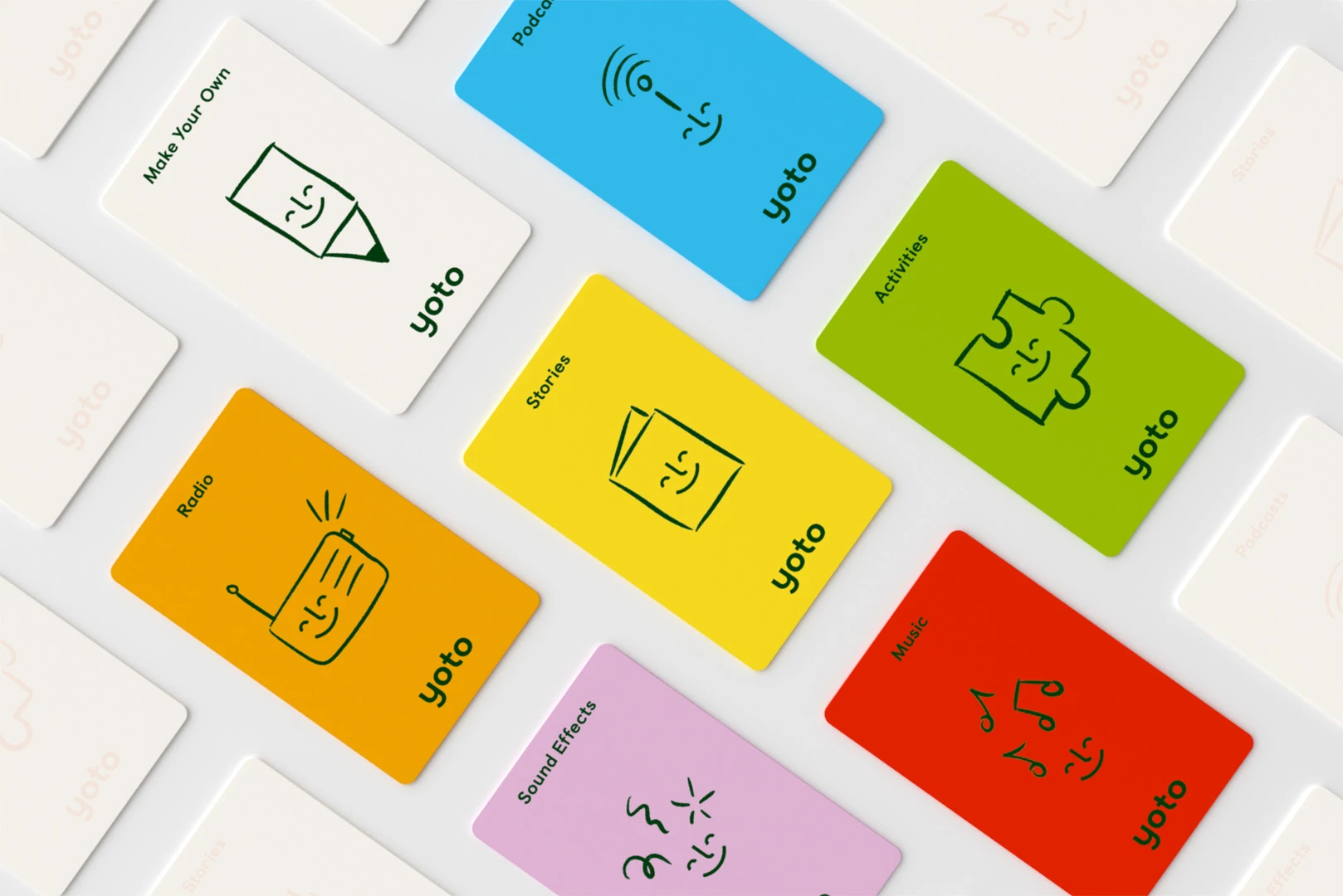
Although Yoto Player has a rather friendly and harmonious look to it, Marshall, who spearheaded the industrial design component of the project, had to create a device that bridged how adults use things and how kids use things.
As adults, we’re used to invisible tech that relies on touchscreens and shouting things like, “Hey Alexa, play ‘Old Town Road.'” But kids still need tactile play. By using physical cards similar to analog media like cassette tapes, this combines both.
Parents can also upload content they select (say, songs from a playlist, or a certain audio book) to blank cards using a parent app; the cards work using NFC technology, like a contactless credit card, that link to content stored on Yoto’s servers. “As physical objects, [the cards] not only allow children to be in control of content,” explains Marshall, “but also support learning and play, and for very young children also promote fine motor control development.”
But as with any smart or connected device, there’s the question of security. And amid privacy and data sharing concerns with Amazon products, I wondered if the Yoto player had a similar ability to listen or capture the audio around it. According to Marshall, the device “deliberately doesn’t have a microphone or camera,” so no personal data is captured. The speaker acts simply as an output for sound, which he says, “itself uses a secure connection (HTTPS) to Yoto’s server.” A speaker that functions solely in one direction, as an audio output—with no input—should mean you won’t be subjected to targeted ads based on overheard conversations about L.O.L. Surprise! dolls or whatever your kids are talking about.
It some ways, the Yoto player was designed to do less. For modern parents, that may be just the thing.
Recognize your brand’s excellence by applying to this year’s Brands That Matter Awards before the early-rate deadline, May 3.
